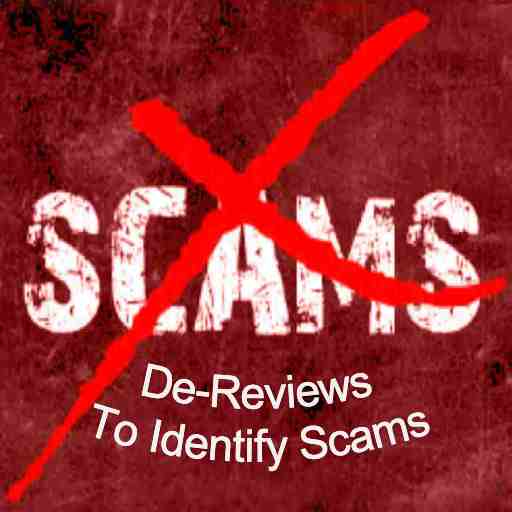If you are looking for Tinijoi .com to find out whether it is scam or trustworthy company, then let’s get straight to the answer from the Tinijoi review as below.
This Tinijoi review was first published on 17 July 2022, and updated at 12 Sep 2023.
- Safety Index for Tinijoi
- Website Highlights:
- What is Tinijoi.com?
- Tinijoi is listed under one of the problematic sites due to the following drawbacks on its website:
- What Measures Can You Take to Safeguard Yourself from Online Store Scams?
- What Actions to Take When You've Been Scammed by an Online Store?
- How to get a refund from scam online store?
- Our Final Verdict:
- FAQs
Safety Index for Tinijoi
Safety Index: 15/100 (SCAM)
Website Highlights:
- Domain name: Tinijoi.com
- Website name: Tinijoi
- Email: se*****@*****oi.com
- Parent Company Name And Address: Kentesh Ltd, Signature, 15 St. Helens Place, London, England, EC3A 6DQ
- Registration Number: 12948235
- Product Categories Available On Its Website: NEW, Hot Sale, Hoodies&Sweatshirts, T-shirts, Gym Shorts, Printed Tees, Casual Shorts, Tracksuits, Pants, Jackets, ACC
- Products Listed On Its Website: Jackets, tops, bottoms, sets, accessories, etc.
What is Tinijoi.com?
It is an online shopping store that is selling various products like jackets, tops, bottoms, sets, accessories, etc. However, there are so many things you must know about it before choosing it as your shopping destination.

Tinijoi is listed under one of the problematic sites due to the following drawbacks on its website:
Company Address:
Previously, Tinijoi had provided its parent company name as FADEL-BEATTY LIMITED, which has been linked to lots of shady sites such as Tyraleo, Cabirona, KawikimTop, PurttonTop, Minmoshi, Linfany, Linapei, Shinimg, Yiyinghua, etc.
However, at the time of this Tinijoi review update, it has provided its parent company name as Kentesh Ltd, which also has a history of operating numerous problematic websites, including Zahsuly, Nhelahd, Guwooty, CauchyOnline, Enutin, Strioui, Carhartt-OutletStore, and others.
However, in the future it may change its parent company name and address again, since similar types of sites did change their parent company names and addresses in the past.
Discount and Sales offers:
It is claiming to sell lots of products at heavy discount rates. You should know that these days mostly scam sites are offering such huge discounts to attract people into their scam.
Copied content:
Lots of details provided on its website, including its website theme match with multiple problematic sites.
Social Media Presence:
The absence of any social media icons linking to its official social media page on its website is in contrast to legitimate online stores, which typically include these icons to facilitate customers in accessing their social media profiles.
Returns and Exchange:
It has a Return And Exchange which is found to be very unrealistic for the return and exchange of items. So, it is almost impossible to get the full payment back from these kinds of websites due to their confusing provisions.
Customer Complaints and Delivery:
The customer support as well as delivery time of sites similar to this site is also very poor as per the complaints received from the buyers of similar kinds of sites.
What Measures Can You Take to Safeguard Yourself from Online Store Scams?
Staying safe from scam online stores is essential to protect your personal and financial information. Here are some tips to help you identify and avoid online shopping scams:
-
Research the Store:
- Look for reviews and ratings of the online store from reputable sources. Websites like Trustpilot and the Better Business Bureau can provide valuable insights.
- Check if the store has a physical address and contact information. Scammers often use vague or non-existent contact details.
-
Secure Website:
- Ensure the website has a secure connection. Look for "https://" and a padlock symbol in the address bar, which indicates the website uses encryption to protect your data.
-
Look for Trust Seals:
- Numerous reputable e-commerce websites proudly showcase trust seals or certificates issued by recognized authorities. Conversely, fraudulent online stores often either omit such trust seals entirely or resort to displaying counterfeit versions. It's important to remain vigilant when encountering trust seals such as McAfee, Norton, and others. If these seals are either non-clickable or clickable but redirect you to unrelated pages rather than the official verification pages maintained by the respective trust seal companies, it's a clear indication that these seals are counterfeit and not to be trusted.
-
Read Reviews and Feedback:
- Be cautious of online stores with no reviews or only positive reviews. Scammers can create fake positive reviews to appear legitimate.
-
Check for Contact Information:
- Verify that the store's contact information, including phone number and email, is valid and responsive. Reach out to them with questions to gauge their responsiveness. Better avoid ones without any contact details.
-
Beware of Too-Good-To-Be-True Deals:
- If the prices seem unrealistically low compared to other reputable stores, it's a red flag. Scammers often use low prices to lure victims.
-
Look for Return and Refund Policies:
- A reputable online store should have clear return and refund policies. Read them carefully to understand your rights as a consumer. Stay away from stores with refund policies that make it hard to get a full refund.
-
Use Trusted Payment Methods:
- Pay with credit cards or trusted online payment systems like PayPal. They offer additional layers of protection and dispute resolution.
-
Avoid Wire Transfers and Gift Cards:
- Scammers often ask for payment via wire transfers, prepaid gift cards, etc. because these methods are difficult to trace. Avoid using them.
-
Check Domain Age:
- Use domain age-checking tools to see how long the website has been active. New or recently created websites are riskier.
-
Be Wary of Unsolicited Emails or Ads:
- Don't click on links or purchase products from unsolicited emails or pop-up ads. Legitimate businesses don't typically operate this way.
-
Keep Software and Antivirus Updated:
- Ensure your computer and mobile devices have up-to-date antivirus and anti-malware software to help protect against phishing attempts and malware.
-
Monitor Your Bank and Credit Card Statements:
- Regularly review your financial statements for any unauthorized transactions. Report any suspicious activity to your bank or card issuer immediately.
What Actions to Take When You've Been Scammed by an Online Store?
If you've been scammed by an online store, here are the steps you should take:
- Contact the Store: Reach out to the online store's customer support or contact information provided on their website. Explain the situation and request a resolution, such as a refund or replacement for the product you purchased.
- Document Everything: Keep records of your communications with the online store, including emails, chat logs, or any other correspondence. Take screenshots of the website, product descriptions, and payment receipts as evidence.
- Check Your Payment Method: If you paid with a credit card, contact your credit card company or bank immediately to report the scam. If you have paid using PayPal, open a dispute and contact the PayPal support team. They may be able to reverse the transaction or assist in resolving the issue.
- Report to Authorities: Report the scam to relevant authorities, such as the Better Business Bureau, FBI, FTC, etc. or your country's consumer protection agency. They can investigate and take legal action against fraudulent online stores.
- Share Your Experience: Warn others about the scam by posting reviews or complaints on relevant websites and forums. This can help prevent others from falling victim to the same scam.
- Monitor Your Accounts: Keep a close eye on your financial accounts to ensure that the scammer doesn't make additional unauthorized charges. Change your passwords and enable two-factor authentication on your online accounts for added security.
- Consider Legal Action: If the scam involves significant financial loss, consult with an attorney to explore potential legal remedies.
- Protect Yourself: Learn from the experience and be cautious when shopping online in the future. Research online stores before making purchases, and look for reviews and customer feedback to gauge their trustworthiness.
Remember that the best way to deal with scams is to prevent them in the first place. Always exercise caution and due diligence when shopping online, especially with unfamiliar or suspicious websites.
How to get a refund from scam online store?
Here are some general guidance on what you can do if you didn't receive any item or received the wrong item from a scam online store and are facing difficulties obtaining a refund:
- Document Everything: Make sure you have clear documentation of your order, including the product you ordered and any communication with the scam online store. This includes screenshots, emails, order confirmations, and any correspondence you've had with the store.
- Contact the Seller Again: Continue trying to contact the seller and explain the situation calmly and clearly. Sometimes, persistence can lead to a resolution.
- In the case if the item is not delivered: You should contact your bank or credit card company to request assistance in securing a refund. If your payment was made through PayPal, you can also contact the PayPal support team and initiate a dispute.
- In the case if wrong or cheap quality Item is delivered: Dispute the Charge with Your Credit Card Company or PayPal: If you used a credit card or PayPal for the purchase, contact your credit card company or PayPal again and again. Provide them with all the evidence and details about receiving the wrong item. Emphasize that you received an item that is different from what you ordered, and that the seller is not cooperating with a refund. Obtain a copy of the tracking information from the postal service, which should clearly display the delivery address and the item's weight, likely lower than the weight of the item you originally ordered. Share these specific details with your bank, credit card company, or PayPal. Many individuals who have furnished such evidence to their financial institution or PayPal have successfully obtained full refunds with their assistance.
- Review Your Credit Card's Chargeback Policy: Credit card companies often have a chargeback process that allows you to dispute a transaction and request a refund. Review your credit card's policy on chargebacks and follow their specific procedures for initiating one.
- Check PayPal's Buyer Protection Policy: If you used PayPal, review their Buyer Protection policy. You may be able to open a dispute through PayPal, and they may assist in resolving the issue.
- File a Complaint with Consumer Protection Agencies: Report the scam online store to relevant consumer protection agencies in your country or region. They may be able to investigate and take action against the fraudulent business.
- Consider Legal Action: If all else fails, you may want to consult with a legal professional or consumer rights organization for advice on pursuing legal action against the scam online store. Keep in mind that this can be a lengthy and costly process, so it's typically considered a last resort.
- Educate Others: Share your experience on review websites, social media, and consumer forums to warn others about the scam online store. This can help prevent others from falling victim to the same scam.
Remember that the effectiveness of these steps may vary depending on your location, the payment method you used, and the specific policies of the credit card company or PayPal.
Our Final Verdict:
Considering all the above presented facts, we can draw the conclusion that Tinijoi is one of the suspicious websites.
You can find the lots of suspicious sites listed within our “Suspicious” category by clicking >HERE< or you can find about various kinds of scams by scrolling within our “Scams” category by clicking >HERE< or you can navigate our website through our home page to find out the several interesting and knowledgeable articles under different categories by clicking >HERE<.
If you want to say something about this company, then please feel free to place your comment below. Also feel free to share this review with your friends and families through your social media accounts to make them aware of this online store.
These days multiple new online stores are claiming to sell various items on huge discount, but most of them are scams. So, it’s better to stay away from the new online stores or at least do some research before you purchase something from the new online stores because most of these new online stores don’t deliver the purchased items to their clients or, deliver completely different or very low-quality items. Some scam online stores even have charged the credit card of clients randomly without their consent. So, if you have ever purchased mistakenly from scam sites, we suggest you immediately contact your bank or credit card company to secure your credit card information.
FAQs
What are some red flags associated with Tinijoi.com?
Tinijoi.com exhibits several concerning signs, including:
- Frequently changing parent company names and addresses.
- Offering products at heavily discounted rates, a common tactic used by scam websites.
- Website content and theme similarities with problematic sites.
- Unrealistic return and exchange policies.
- Poor customer support and delivery experiences reported by customers of similar sites.
What is the current parent company name and address for Tinijoi?
As of the latest review update, Tinijoi has listed its parent company as Kentesh Ltd, with an address at Signature, 15 St. Helens Place, London, England, EC3A 6DQ. However, it's important to note that this information may change in the future.
Should I consider purchasing from Tinijoi.com?
It is highly recommended to avoid making purchases from Tinijoi.com due to its classification as a suspicious website and the numerous red flags mentioned in the review.
Can I share this Tinijoi review with others to raise awareness about Tinijoi?
Yes, you can share this Tinijoi review with friends and family through your social media accounts to help them become aware of the potential risks associated with Tinijoi and similar suspicious websites.
What should I do if I've already made a purchase from Tinijoi.com?
If you've made a purchase from Tinijoi.com and suspect it's a scam:
- Contact your bank or credit card company immediately to secure your financial information.
- Document your transaction and any communication with the website.
- Consider reporting the website to relevant consumer protection agencies.
Wishing you a secure online purchase!


Leave a Reply